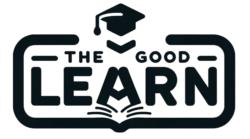The future of education professionals is greatly influenced by teaching courses and degrees in Singapore, where education is highly prized and diligently pursued. Prospective teachers receive extensive training to ensure they have the knowledge, abilities, and skills needed to succeed in the challenging teaching profession. Examine the key abilities and skills that students enrolled in teaching courses in Singapore should expect to gain.
1. Pedagogical Knowledge and Practices
Developing good pedagogical knowledge and practices is essential to any teaching degree. Educators possess a profound comprehension of educational theories, pedagogical approaches, and instructional tactics customised to address the varied requirements of students. Through coursework and hands-on experiences, aspiring educators learn how to create effective lesson plans, give captivating lectures, and evaluate students’ progress using various assessment techniques.
2. Classroom Management Techniques
Effective classroom management is crucial to providing a supportive learning environment where kids can flourish intellectually and behaviorally. In Singapore, teaching programmes highly value developing effective classroom management strategies. Teachers acquire the skills necessary to set clear standards, apply consistent disciplining techniques, and cultivate strong connections with pupils to create a peaceful and effective learning environment.
3. Differentiation and Inclusive Practices
Teachers in Singapore’s heterogeneous educational environment should be skilled at meeting every student’s unique requirements and learning preferences, including those with various skills and backgrounds. Teaching courses strongly emphasise the value of differentiation and inclusive approaches to guarantee that all students have fair access to high-quality education. Teachers acquire the skills necessary to adapt lessons, make accommodations, and design welcoming classrooms that value diversity and encourage student achievement.
4. Technology Integration
In Singapore’s educational system, utilising technology in teaching and learning has grown in popularity. Undergoing a teaching degree in Singapore provides teachers with the information and abilities they need to successfully use instructional technology in the classroom. Teachers learn how to incorporate a variety of technical resources, such as interactive whiteboards and online learning platforms, to improve instruction, promote collaborative learning, and help students develop digital literacy skills.

5. Assessment and Data Analysis
Assessment is integral in the teaching and learning process, providing valuable insights into student progress and informing instructional decisions. Singaporean teaching curricula equip teachers with the skills required to create reliable and valid assessments, evaluate assessment data, and apply assessment findings to guide intervention and lesson preparation. To ensure ongoing progress in teaching and learning outcomes, teachers acquire the skills to read assessment data to pinpoint areas where students are growing and areas requiring more assistance.
6. Collaboration and Professionalism
Effective teaching requires collaboration with parents, colleagues, and other stakeholders outside of the classroom to assist students’ learning and growth. The value of professionalism and teamwork in the teaching profession is emphasised in teaching courses. Teachers acquire the skills necessary to work together to exchange best practices, connect with parents to encourage parental involvement in the classroom and maintain the highest moral standards and professional demeanour in all of their contacts with children and the community.
7. Lifelong Learning and Reflective Practice
The teaching profession is always changing. This characteristic entails that teachers must continuously study to stay updated on the latest findings, industry trends, and instructional best practices. A culture of lifelong learning and reflective practice among educators is fostered by teaching courses in Singapore. Throughout their careers, educators acquire the ability to critically evaluate their methods, pinpoint areas for development and improvement, and look for professional development opportunities to further their knowledge and skills.
Conclusion
Aspiring teachers in Singapore can acquire a thorough foundation of critical skills and competencies necessary for success in the teaching profession by enrolling in teaching courses. These programmes equip teachers with pedagogical knowledge, classroom management skills, technology integration abilities, and collaborative professionalism, enabling them to address the different needs of students and make valuable contributions to Singapore’s education ecosystem. Teachers continue to hone their profession and significantly impact the lives of their students and the larger community by adopting reflective practice and lifelong learning.
Contact Asian International College to take the first step toward a rewarding and impactful teaching career!

